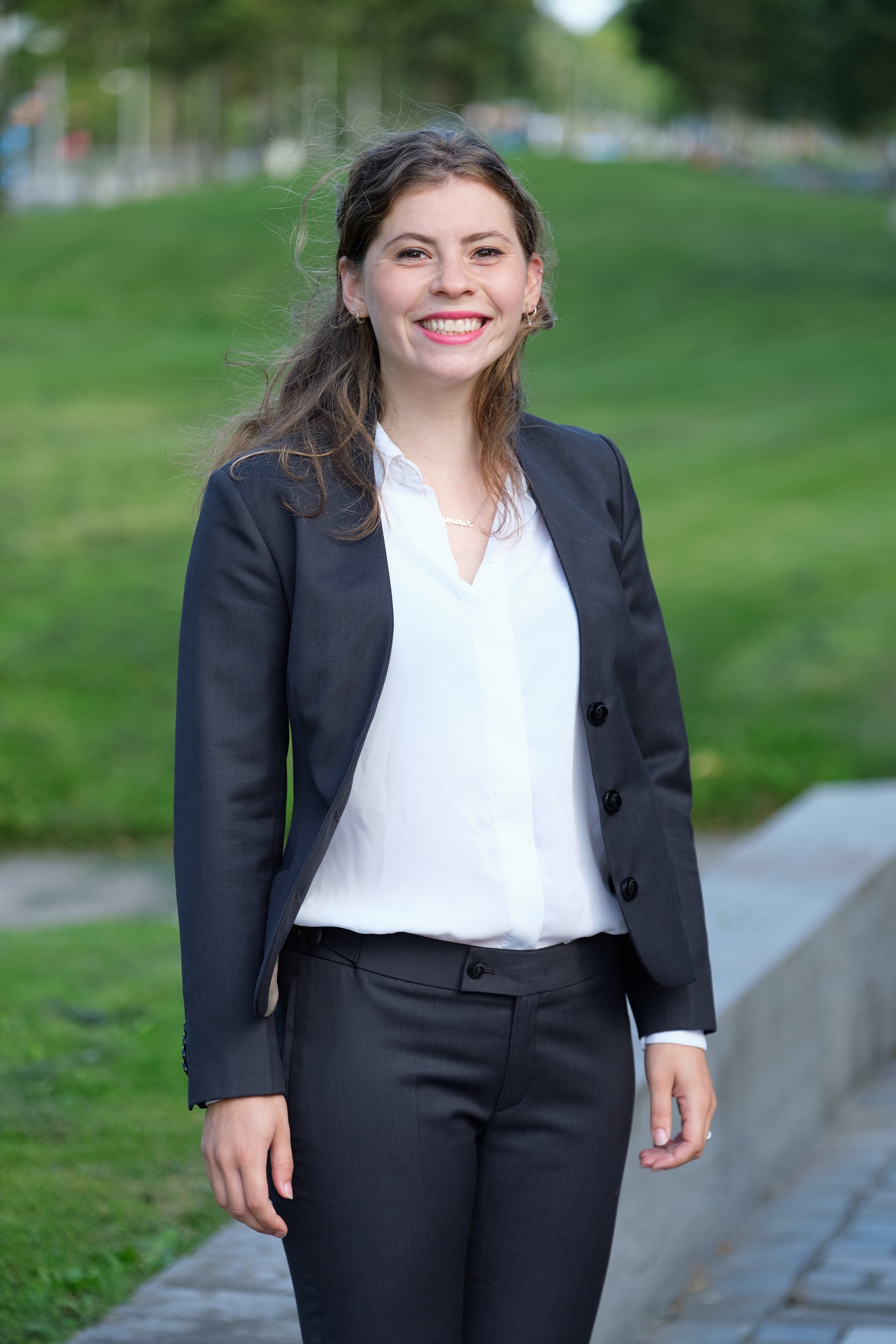According to the TU Delft Student Council, an internationalisation quota may restrict Dutch students if they are no longer able to study in the Netherlands. “It is a big step to study abroad,” says chairwoman Marie Sam Rutten.
Marie Sam Rutten: "Using English as the medium of education would have to have added benefits." (Photo: Haalbeeld Fotografie)
What do you think of closing the preliminary registration of students from outside the EU for the Computer Science and Engineering bachelor programme?
“Of course we don’t like rejecting students who want to study here, but an emergency measure had to be taken to maintain the quality of education. We see that TU Delft is taking measures to be able to enrol as many students as possible. Of course, knowing about the cap beforehand would have been nice.”
Was switching to the English language a good idea for this study after all?
“As a Student Council, we believe switching to English as the teaching medium must always be thought through carefully. In Computer Science and Engineering, switching had a clear added value inherent to the discipline and because of many non-Dutch speaking teachers. The consequences of the switch are making it difficult to change the teaching language. TU Delft must look carefully at alternatives. I don’t think that there is a ready-made solution at the moment.”
The Executive Board chairman, Tim van der Hagen, said in an interview that students from outside the EU have to pay much higher tuition fees than Dutch and European students. He doesn’t think it’s right to ask them to do this ‘if our programme is not in order. The same goes for Dutch and European students’. What do you think about this?
“That non-EU students pay higher tuition fees is not necessarily a consideration for us to close the preliminary registration to students from outside the EU. I think that every student who comes here, however much you pay, deserves the best education. I have read that that is what Van der Hagen means too.”
Van der Hagen states that at least half of the bachelor’s students should be Dutch. In addition, thirty-five percent should come from the rest of the EU and fifteen percent from outside the EU. What does the Student Council think of a quota system?
“It is a difficult issue. As a Dutch university that is largely paid for by the Dutch government, it has a societal task to train mainly Dutch students. It is a big step to study abroad as a Dutch student. A group of Dutch students will be limited if they cannot study in the Netherlands and are forced to go abroad because of a quota. The question we often ask ourselves is should you give a less good Dutch student priority over a good international student? We do not yet have a clear answer. We think the accessibility of our education is paramount. That is why we are against selection measures, also because the current measures applied by TU Delft are inadequate in predicting student success rates. However, the high drop-out rate among TU Delft students is a matter of concern of course. Therefore we believe it is very important that students choose the right study programme from the start, which we believe can be achieved by improving the current “study choice check” offered by most faculties.”
TU Eindhoven will switch to English as the working language. Van der Hagen is not in favour of introducing this at TU Delft. What is your point of view?
“Using English as the medium of education would have to have added benefits. This is not the case in some fields. Civil engineering, for example, is a very Dutch course with a lot of Dutch knowledge and educational materials. This also applies to architecture and a number of other studies. I think it should be looked at per study. I don’t believe we should automatically switch to the English language across the university as it may lead to a drop in quality of some bachelor programmes.”
Do you have a question or comment about this article?
c.j.c.vanuffelen@tudelft.nl


Comments are closed.